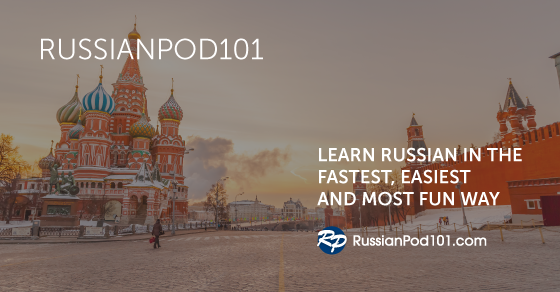برچسب: Focus
-

Giving Simple Directions in Russian – Focus
Hi everyone. I am Anastasia Komarova. Всем привет. (Vsem privet.) Меня зовут Анастасия Комарова. (Menya zovut Anastasiya Komarova.) Welcome to the Russian Whiteboard Lessons. So today in this lesson you will learn how to ask and give simple directions in Russian. Let’s get started. Поехали. (Poyekhali.) And now let’s look at the dialogue. When I read I want you to pay attention to prepositions that show direction. Find these prepositions and see how it’s used in the dialogue. Imagine that you are lost or can’t figure out how to find a building, place or some object you need. Где находится библиотека? (Gde nakhoditsya biblioteka?) Where is the library? Библиотека находится перед школой. (Biblioteka nakhoditsya pered shkoloy.) The library is in front of the school. The question. Где находится библиотека? (Gde nakhoditsya biblioteka?) The answer. Библиотека находится перед школой. (Biblioteka nakhoditsya pered shkoloy.) Библиотека, the library, находится is перед, in front of, школой, the school. Библиотека, library, school, школа. Sometimes the verb can be omitted. It will sound a little informal. Now let’s look at the sentence pattern. This pattern was the structure that our dialogues followed. Place находится direction. Place is direction. For example, например, библиотека находится direction. The library is direction. The words that we use for asking and giving simple directions. Находится, лежит, is. -

Discussing Language Abilities in Russian – Focus
Hi, everyone! I’m Anastasia Komarova. Всем привет! Меня зовут Анастасия Комарова. (Vsem privet! Menya zovut Anastasiya Komarova.) Welcome to the Russian Whiteboard Lessons! In this lesson, you’ll learn how to discuss language abilities in Russian. Let’s get started! Поехали! (Poyekhali!) Okay, let’s look at the vocabulary. And the first word is английский. (angliyskiy) English. Английский. (angliyskiy). Английский. (angliyskiy) Next word is испанский. (ispanskiy) Spanish. Испанский. (ispanskiy) Испанский. (ispanskiy) Next word is китайский. (kitayskiy) Chinese. Китайский. (kitayskiy) Китайский. (kitayskiy) Next word is французский. (frantsuzskiy) French. Французский. (frantsuzskiy) Французский. (frantsuzskiy) Next word is португальский. (portugal’skiy) Portuguese. Португальский. (portugal’skiy) Португальский. (portugal’skiy) Next word is итальянский. (ital’yanskiy) Italian. Итальянский. (ital’yanskiy) Итальянский. (ital’yanskiy) Next one is немецкий. (nemetskiy) German. Немецкий. (nemetskiy) Немецкий. (nemetskiy) Next word is японский. (yaponskiy) Japanese. Японский. (yaponskiy) Японский. (yaponskiy) Next word is арабский. (arabskiy) Arabic. Арабский. (arabskiy) Арабский. (arabskiy) Next word is корейский. (koreyskiy) Korean. Корейский. (koreyskiy) Корейский. (koreyskiy) Next word is русский. (russkiy) Russian. Русский (russkiy) Русский. (russkiy) And the last word is греческий. (grecheskiy) Greek. Греческий. (grecheskiy) Греческий. (grecheskiy) These words in this context mean languages. For nationalities the words are a little bit modified, except for the word Russian. For example: Russian language – “русский язык” (russkiy yazyk), male nationality also – “русский” (russkiy). Russian